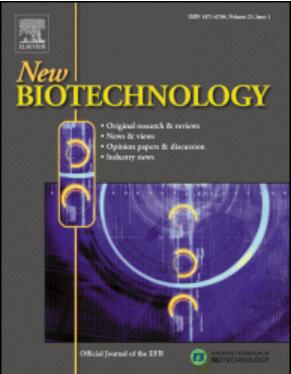OncoFlow: A multiplexed microfluidic platform for personalized drug sensitivity assessment
IF 4.5
2区 生物学
Q1 BIOCHEMICAL RESEARCH METHODS
引用次数: 0
Abstract
While biomarker-guided treatments and NGS-based approaches are refining precision medicine, they are not universally applicable. The gap between the genomic characterization of tumors and their functional behavior is becoming increasingly evident. There is an escalating demand for functional assays that can customize cancer treatments for individual patients and bridge this gap. We have developed OncoFlow, an integrated microfluidic platform that automates viability assays. This platform customizes treatment options by assessing the functional responses of a patient's tumor cells to a specific drug panel. This study specifically addressed non-small cell lung adenocarcinoma (NSCLC) in patients presenting pleural effusion. We used the NCI-H2228 adenocarcinoma cell line, which harbors the EML4-ALK fusion oncogene, to develop and fine-tune the viability assay. Cells cultivated in microfluidic chambers were treated with various concentrations of the tyrosine kinase inhibitors alectinib and crizotinib, and the cytotoxic effects were measured. The results were consistent with those from conventional cell culture methods, thereby validating the assay's reliability. Next, pleural effusion samples from six NSCLC patients, four of them harboring the EML4-ALK rearrangement were tested with alectinib and crizotinib using the OncoFlow system. Monitoring and analysis of cell viability showed varied sensitivities to crizotinib, while all samples exhibited resistance to alectinib. These findings underscore OncoFlow's potential to enhance physician decision-making and customize treatment plans, ultimately improving patient outcomes.
求助全文
约1分钟内获得全文
求助全文
来源期刊

New biotechnology
生物-生化研究方法
CiteScore
11.40
自引率
1.90%
发文量
77
审稿时长
1 months
期刊介绍:
New Biotechnology is the official journal of the European Federation of Biotechnology (EFB) and is published bimonthly. It covers both the science of biotechnology and its surrounding political, business and financial milieu. The journal publishes peer-reviewed basic research papers, authoritative reviews, feature articles and opinions in all areas of biotechnology. It reflects the full diversity of current biotechnology science, particularly those advances in research and practice that open opportunities for exploitation of knowledge, commercially or otherwise, together with news, discussion and comment on broader issues of general interest and concern. The outlook is fully international.
The scope of the journal includes the research, industrial and commercial aspects of biotechnology, in areas such as: Healthcare and Pharmaceuticals; Food and Agriculture; Biofuels; Genetic Engineering and Molecular Biology; Genomics and Synthetic Biology; Nanotechnology; Environment and Biodiversity; Biocatalysis; Bioremediation; Process engineering.
 求助内容:
求助内容: 应助结果提醒方式:
应助结果提醒方式:


